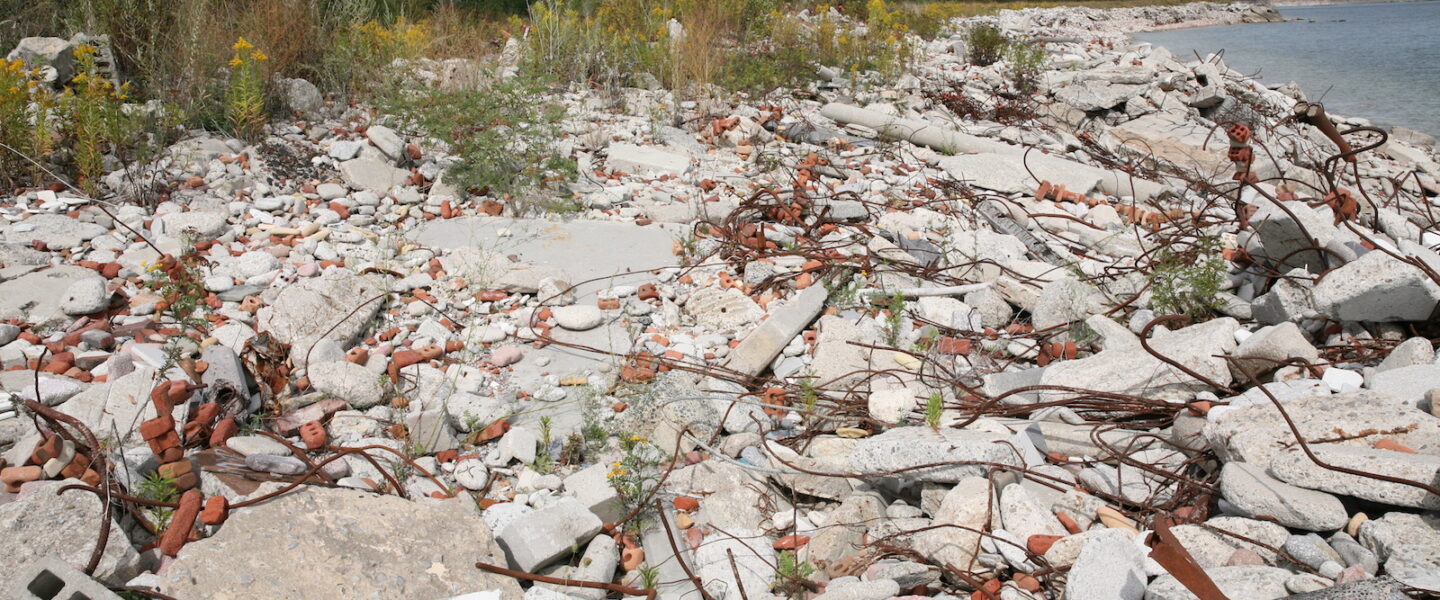
Lara Almárcegui, Guide to the Leslie Street Spit, 2023. Courtesy of the artist and Prefix Institute of Contemporary Art, Toronto.
Estonian Academy of Arts, Faculty of Architecture is pleased to announce its spring 2024 public lecture series. Organized around the theme of Unlearning, the lecture series aims to engage with values, imaginaries and systems of knowledge that shape the contemporary fields of architecture and urbanism. Unlearning is coordinated by Maroš Krivý, professor of Urban Studies.
According to Gayatri Spivak, for example, unlearning concerns not only what is said, but also what is not said as part of an ideological formation. There is now a broad push to transform design from a practice subservient to elite interests to a comprehensive, interdisciplinary practice capable of responding to a range of social and environmental urgencies. As part of this transformation, the four lectures engage with existing architectural imaginaries while proposing alternative ones.
Topics addressed include sound and the built environment, colonial constructions of the future, the economics of livability, and mining rights. Unlearning is not forgetting, but an active process of working through the assumptions that shape architectural and urbanistic practice in different parts of the world.
The lectures are intended for all disciplines, not only for students and professionals in the field of architecture.
All lectures are held on Thursdays at 6 pm (EET) in the EKA main auditorium. All lectures are in English and free of charge.
Schedule of the spring lectures:
March 14 at 6 pm Jess Myers
April 4 at 6 pm Oulimata Gueye
April 18 at 6 pm Henriette Steiner
May 2 at 6 pm Lara Almárcegui
Jess Myers
Sound and the Built Environment: Unlearning the Visual Regime
March 14
Jess Myers is an urbanist and assistant professor of architecture at Syracuse University whose practice includes work as an editor, writer, podcaster, and curator. Her podcast Here There Be Dragons examines the impact of security narratives on urban planning through the eyes of city residents. She holds a BA in Architecture (Princeton University) and a Masters of City Planning (MIT). Her writing can be found in The Architect’s Newspaper, Log, l’Architecture d’Aujourd’hui, Avery Review, The Architectural Review, Places and Dwell.
Oulimata Gueye
UFA, Université des Futurs Africains #2. It Matters What Stories We Tell to Tell Other Stories of the Future
April 4
Oulimata Gueye is a Senegalese and French critic and curator interested in the uses of digital technologies in Africa and within its diasporas. She co-directed the book Digital Imaginaries, African Positions Beyond Binaries (ZKM-Kerber, 2021) and curated the exhibition UFA, Université des Futurs Africains (Le Lieu Unique, 2021). Gueye teaches at and directs the Art post-graduate program at the École Nationale des Beaux Arts de Lyon. She was a visiting scholar at the Canadian Centre for Architecture (2023).
Henriette Steiner
Before Copenhagen was “Livable”: Postmodernist Urban Development in a Time of Economic Downturn
April 18
Henriette Steiner is Associate Professor and Head of Section at the University of Copenhagen. She holds a PhD in history and philosophy of architecture (University of Cambridge) and works on diversity and justice in architecture and urban history often through feminist writing collectives. Recent books include Tower to Tower (with Kristin Veel, MIT Press, 2020), Touch in the Time of Corona (with Kristin Veel, De Gruyter, 2021) and Untold Stories (with Jannie Bendsen and Svava Riesto, Strandberg Publishing, 2023).
Lara Almárcegui
Construction Rubble, Wastelands and Mining Rights: Who Owns the Ground and Who Can Extract it
May 2
Lara Almárcegui’s artistic practice explores the material aspects of land and urban space. She has worked in different cities, identifying abandoned, unused, or forgotten sites and examining the contemporary transformation processes brought about by social, political, and economic change. In recent years, Almárcegui has turned her attention to construction sites, in particular the composite materials used in the construction of new buildings and the cyclical relationship between land and architecture. Almárcegui represented Spain at the 55th Venice Biennale (2013).
Within the framework of a series of open lectures, the Faculty of Architecture of EKA presents a dozen unique practitioners and valued theorists in the field in Tallinn every academic year.
The lecture series is supported by the Cultural Endowment of Estonia.
More info:
Tiina Tammet
arhitektuur@artun.ee
